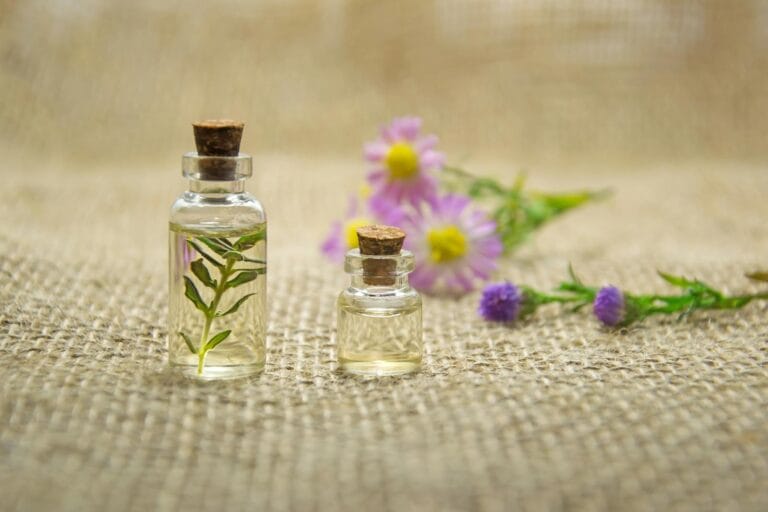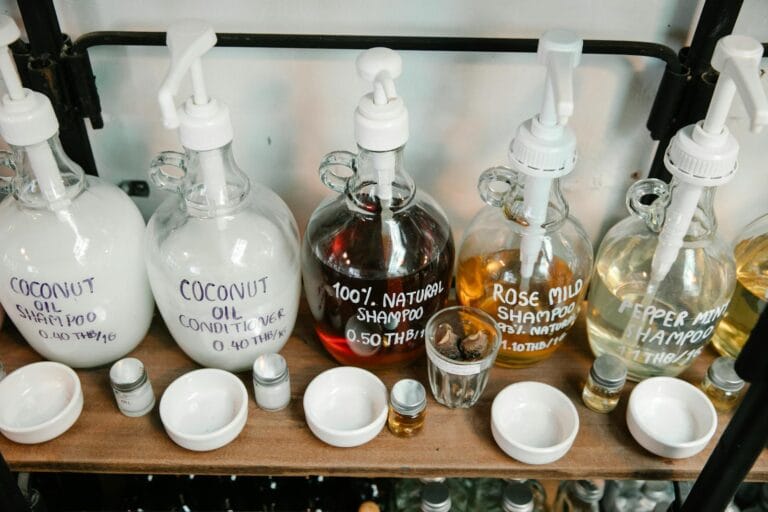
3 Scientifically Proven Natural Active Ingredients in Korean Skincare

In recent years, the trend of natural-based skincare has become increasingly popular among both young people and adults. Natural skincare refers to skin care products formulated using ingredients derived from nature—such as plant extracts, essential oils, and other organic materials—with minimal use of synthetic substances. The main appeal of these products lies in the perception that natural ingredients are safer, more environmentally friendly, and have fewer side effects.
The stereotype surrounding natural skincare is that it is a “healthier” alternative compared to products based on synthetic ingredients. However, it is important to note that the term “natural” does not always equate to “better.” The effectiveness and safety of a product still depend on the type of ingredients, their concentration, and how they are formulated. In many cases, natural and synthetic ingredients offer comparable benefits, depending on their context of use. Therefore, understanding the scientific basis behind the claims of natural products is crucial in choosing skincare that is not only trendy but also effective and safe for the skin.
- South Korea as a Pioneer in Natural Skincare
- The Diversity of Natural Active Ingredients in Skincare
South Korea as a Pioneer in Natural Skincare
One of the pioneers and innovators in the beauty product industry is South Korea. The development of natural-based skincare, such as those containing ginseng, green tea, propolis, snail mucin, mugwort, Centella asiatica, and many others, has grown significantly, utilizing abundant natural resources. The use of natural active ingredients is considered healthier due to generally minimal side effects and environmental friendliness. Below are some active ingredients commonly used in cosmetic formulations.
1. Propolis
Propolis, known as bee glue, is a resinous substance collected by bees from plant buds and is used to maintain the beehive’s structural strength and thermal insulation. Enriched with flavonoids, phenolic acids, and terpenoids, propolis has been widely used in traditional medicine due to its antimicrobial, antioxidant, and anti-inflammatory properties. Topical application of propolis on skin wounds has been proven to reduce free radical activity and enhance collagen synthesis, leading to increased deposition of extracellular matrix proteins and accelerated wound closure. Propolis also exhibits photoprotective effects by combating the harmful impacts of reactive oxygen species (ROS) induced by ultraviolet (UV) radiation.
2. Mucin
The mucin produced by mollusks such as Achatina fulica and Cornu aspersum is commonly found in Korean cosmeceutical products due to its antimicrobial and skin-regenerative properties. The active components in this mucin include glycosaminoglycans and hyaluronic acid, which stimulate collagen production and epidermal regeneration. Recent studies have found melanogenesis-inhibiting and anti-tumor effects against human melanoma cells in vitro, making snail mucin a potential agent for melanoma-related treatments.
3. Centella Asiatica
One of the ingredients currently highly popular in Indonesia is Centella asiatica, also known as tiger grass, a perennial flowering plant long utilized in the pharmaceutical industry. The beneficial effects of C. asiatica extracts on human skin have been demonstrated through both in vitro and in vivo studies for wound healing, psoriasis, and scleroderma. The active compounds in Centella asiatica include flavonoids, terpenes, and saponins. These compounds have been proven to stimulate skin fibroblast proliferation and migration, hydrate the skin, promote wound healing, and enhance collagen synthesis.
The Diversity of Natural Active Ingredients in Skincare
Besides the ingredients mentioned above, there are many other commonly used active substances, such as bee venom, donkey milk, and horse oil derived from terrestrial animals. Additionally, marine animal–based ingredients include pearl powder, salmon roe extract, seaweed, and starfish powder. So far, plant-based ingredients remain the most frequently used, including aloe vera, bamboo, various berries, calendula, chamomile, chrysanthemum, ginseng, licorice root, lotus, pomegranate, turmeric, and yuzu.
A wide variety of natural types and sources can be utilized as active ingredients in skincare products. Nevertheless, it should be emphasized that active compounds derived from either animals or plants still require laboratory testing before being used on human skin. Even though they are applied topically, their concentration must still be carefully considered to ensure safety and effectiveness.
Before being launched on the market, every cosmetic product undergoes a series of tests to ensure its safety for consumers. Laboratory testing helps identify potential irritation, toxicity, and the stability of the product's formula. Even natural ingredients need to be verified through laboratory testing to ensure their effectiveness and safety.
Read more:
3 Recommended Cosmetic Testing Laboratories for Marketing Authorizations!
With proper testing, product claims can be scientifically proven and increase credibility in the eyes of consumers. Choose a trusted cosmetic testing laboratory that provides comprehensive, accurate cosmetic testing services that comply with applicable regulatory standards. Entrust your product testing to a laboratory whose test results are trusted by the Indonesian Food and Drug Authority (BPOM) to ensure that every formula released is truly safe, high-quality, and meets marketing authorization requirements.
Author: Delfia
Editor: Sabilla Reza
References:
Nguyen, J. K., Masub, N., & Jagdeo, J. (2020). Bioactive ingredients in Korean cosmeceuticals: Trends and research evidence. Journal of cosmetic dermatology, 19(7), 1555–1569. https://doi.org/10.1111/jocd.13344



